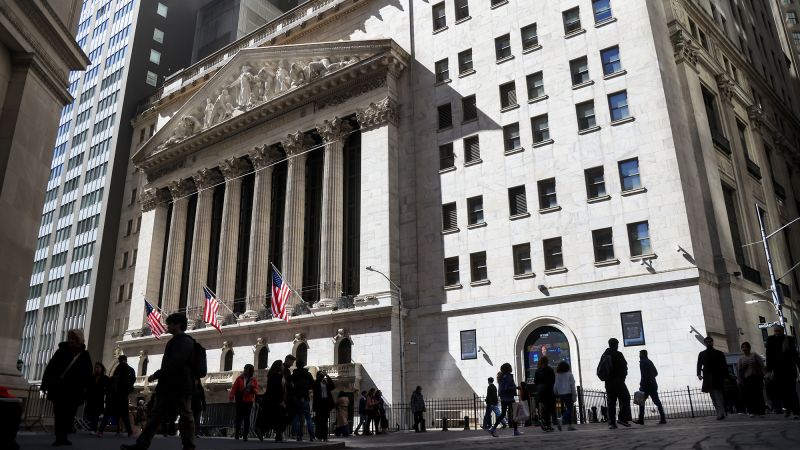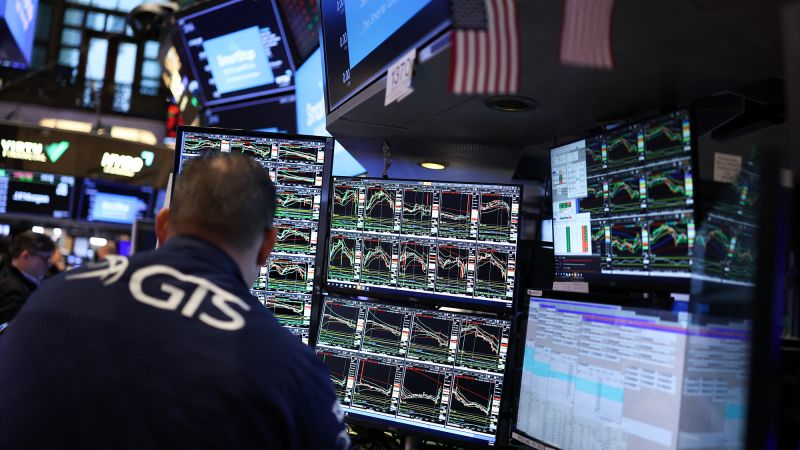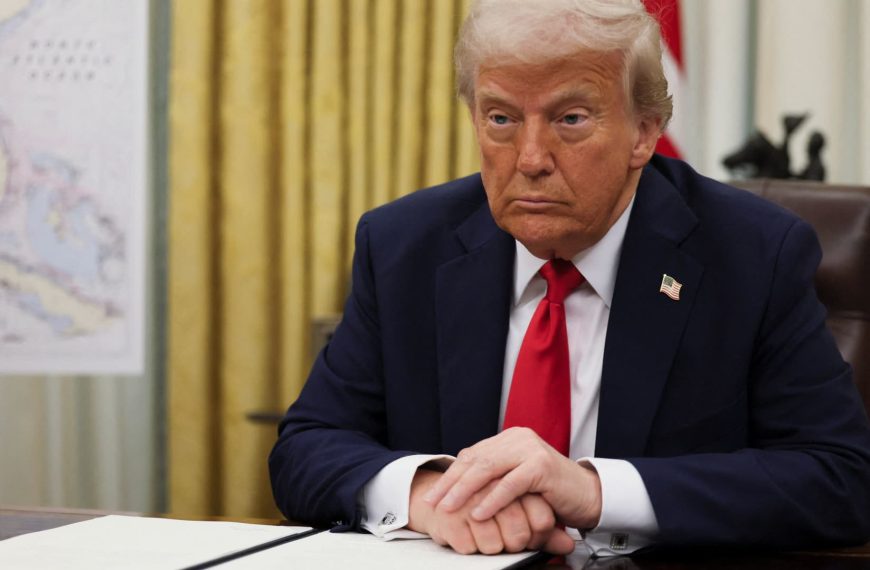The U.S. stock market, once seen as a bastion of stability and growth, is currently experiencing a wave of uncertainty. Investors are increasingly shifting their focus towards European and Asian markets, driven by concerns over President Donald Trump’s economic policies. A recent survey from Bank of America highlights this trend, revealing the largest recorded withdrawal from U.S. stocks since 1999, while simultaneously noting a significant surge in investments in European equities.
A Shift in Investor Sentiment
The sentiment among investors seems to be changing. Analysts at Bank of America suggest that the notion of U.S. economic exceptionalism may have reached its zenith. After the benchmark S&P 500 enjoyed remarkable growth over the past two years, confidence in its continued success has begun to wane, particularly in light of Trump’s trade and foreign policy strategies.
David Russell, a market strategist at TradeStation, remarked, “There seems to be a sea change in overall investor sentiment.” This shift is prompting traders to reconsider their allocations, as the S&P 500 is down approximately 4% this year, contrasting sharply with gains observed in global markets, including those in China, Europe, and Mexico.
Uncertainty in the U.S. Economy
Markets thrive on predictability, but the U.S. economic landscape is increasingly marred by uncertainty, according to Peter Ricchiuti, a finance professor at Tulane University. He noted, “The U.S. has been the preferred destination for investment, but now it’s creating clarity issues on a global scale.”
Recent economic indicators reflect this growing uncertainty. A monthly index measuring U.S. economic policy uncertainty surged in March, marking its highest levels since the onset of the COVID-19 pandemic. The Federal Reserve echoed these sentiments, stating that “uncertainty around the economic outlook has increased.”
Corporate Signals and Market Reactions
Major American corporations are also signaling troubling times ahead. For example, FedEx saw its shares plummet by 6.4% following a grim profit forecast. CFO John Dietrich stated, “Our revised earnings outlook reflects continued weakness and uncertainty in the U.S. industrial economy.” Analysts from Baird have suggested that the extensive tariffs and inconsistent implementation of policies under Trump’s administration are causing market disruptions and complicating future planning for businesses.
While American investors grapple with these challenges, European markets are presenting a more stable investment landscape. The Trump administration’s foreign policy shift regarding Ukraine has prompted European nations to increase defense spending, which has positively impacted European stock performance.
European Markets on the Rise
Germany’s DAX index has surged by 15% this year, propelled by political changes that signal a shift towards increased defense expenditures. Chancellor-in-waiting Friedrich Merz has successfully advocated for significant investments in defense, enhancing economic growth forecasts. Kristina Hooper, chief investment strategist at Invesco, noted, “While this is in response to U.S. policies, it offers compelling economic benefits for Germany.”
Investment strategist Ross Mayfield at Baird commented on the broader implications, stating, “The question is whether Trump’s more isolationist policies could lead to a new investing paradigm internationally.”
The Impact of Tariffs on Markets
Both the S&P 500 and the Nasdaq have recently entered correction territory, falling over 10% from their peaks. Although the S&P has recovered somewhat, it remains down 7.8% from its all-time high. The technology sector, which had previously driven U.S. market gains, has also stumbled as major tech stocks, excluding Meta, have reported declines this year.
In January, an unexpected development involving DeepSeek’s AI model sent shockwaves through the market, raising doubts about the sustainability of the AI boom. Meanwhile, BYD, a Chinese electric vehicle manufacturer, has made strides in establishing itself as a formidable competitor to Tesla, whose shares have dropped nearly 40% this year.
In response to Trump’s tariffs, the Chinese government introduced a “special action plan” to boost consumer spending, contributing to a notable rise in Chinese stocks. The Hang Seng index in Hong Kong has gained 18% this year alone.
Conclusion: Looking Ahead
Despite the current turbulence, Russell from TradeStation maintains that the U.S. economy remains more robust than that of Europe and considerably more reliable than China’s. Betting against America has historically been a risky endeavor. However, the initial weeks of Trump’s second term have not aligned with the pro-business optimism that many investors had anticipated following his re-election in November. As the global investment landscape evolves, it will be crucial for investors to stay informed and adaptable.











